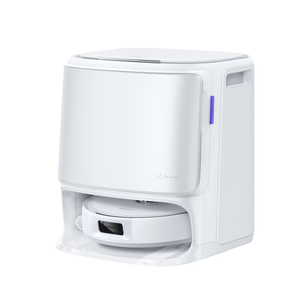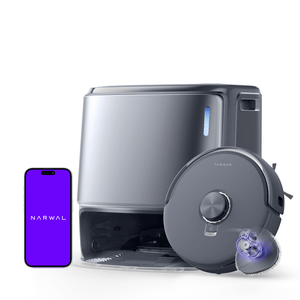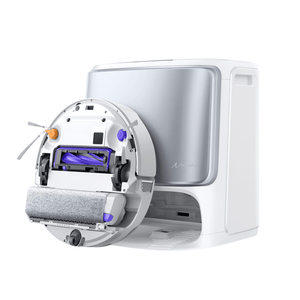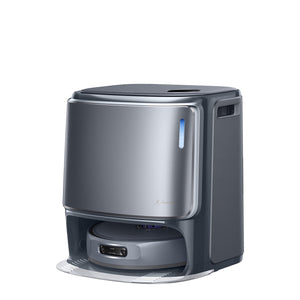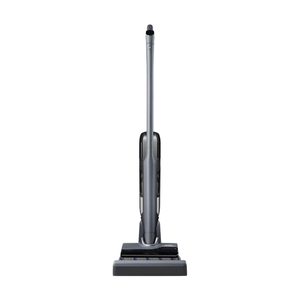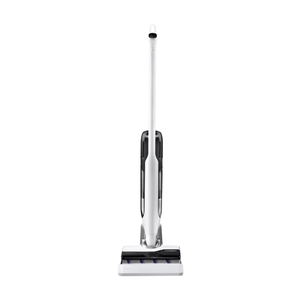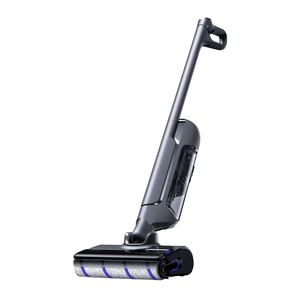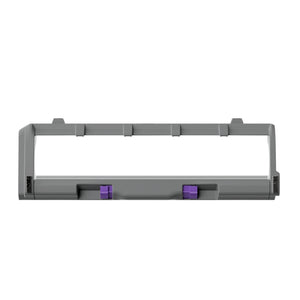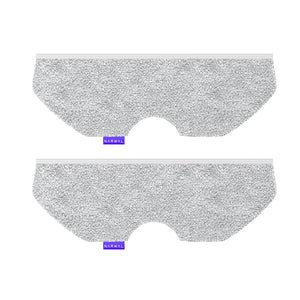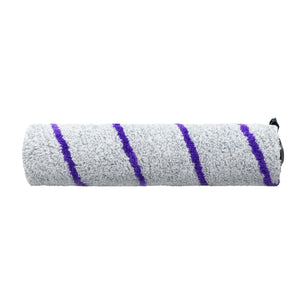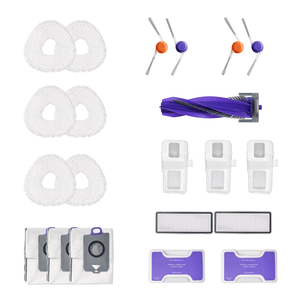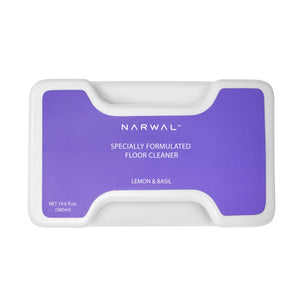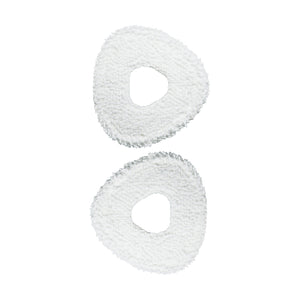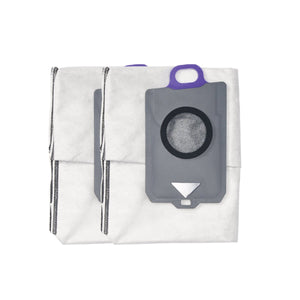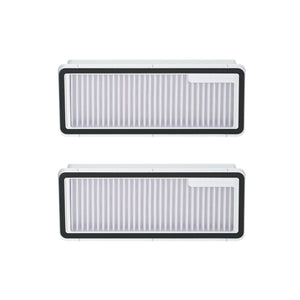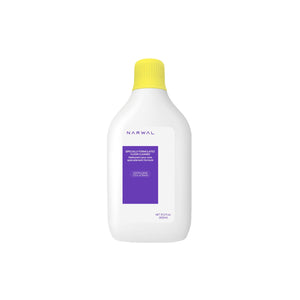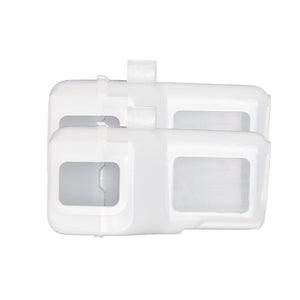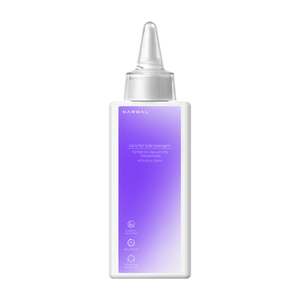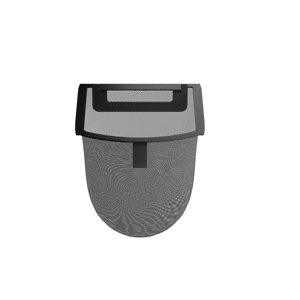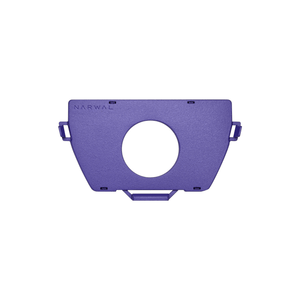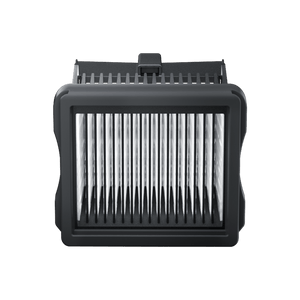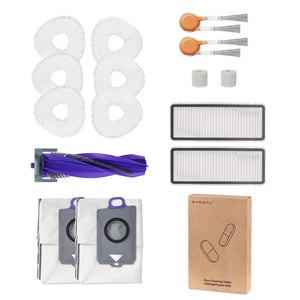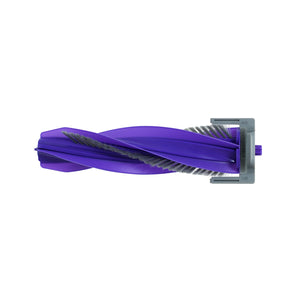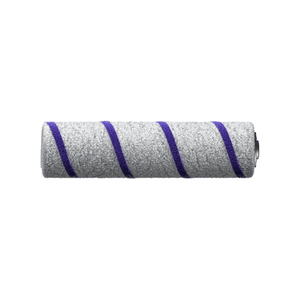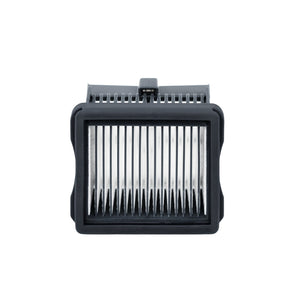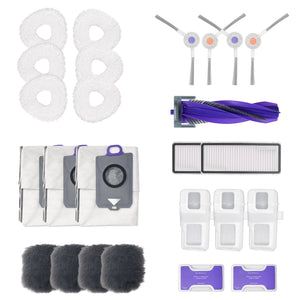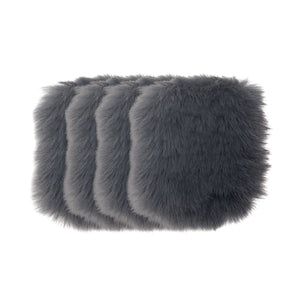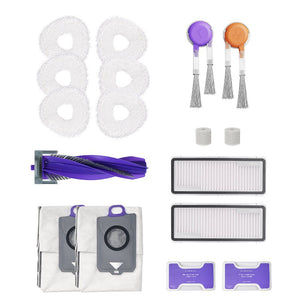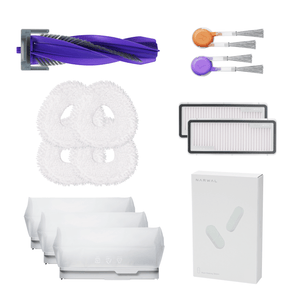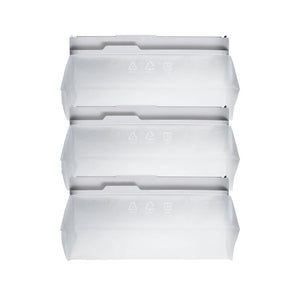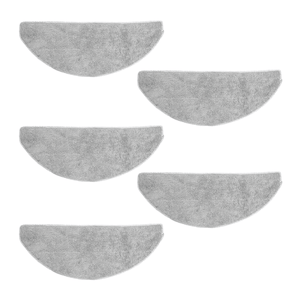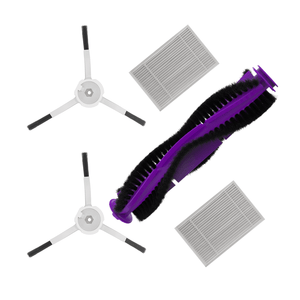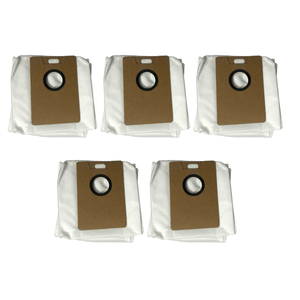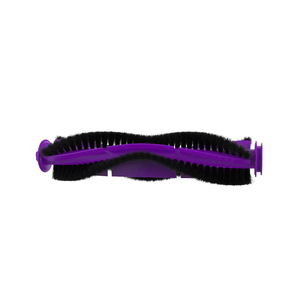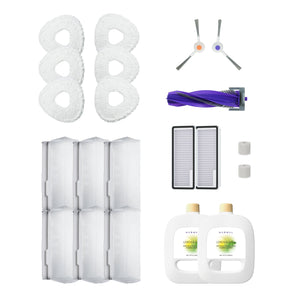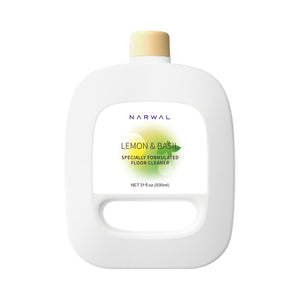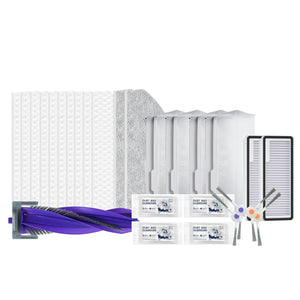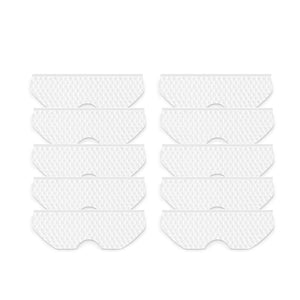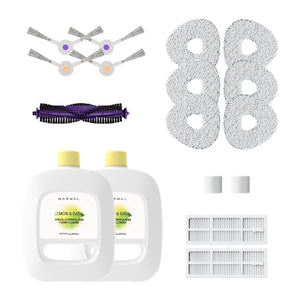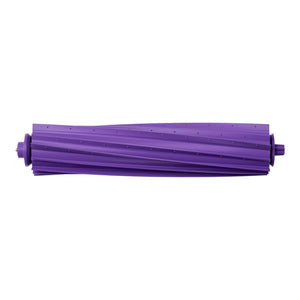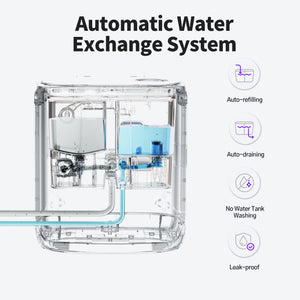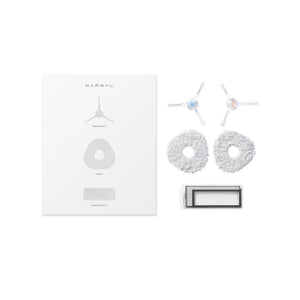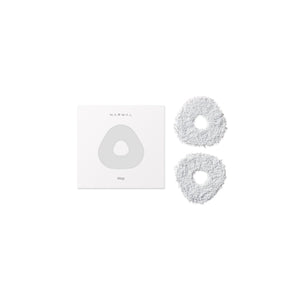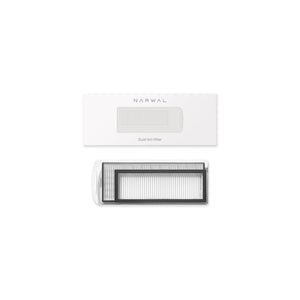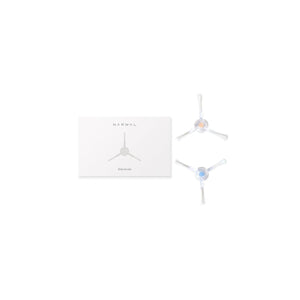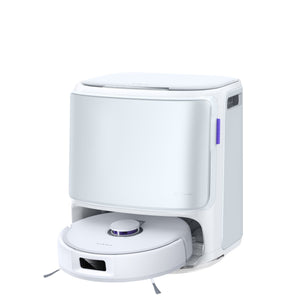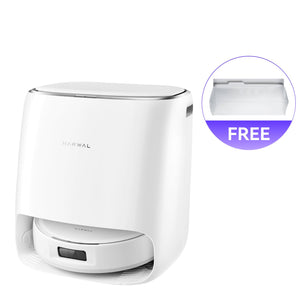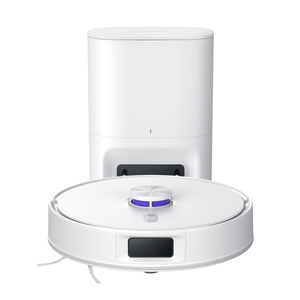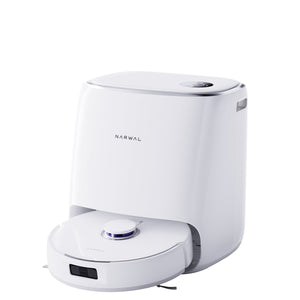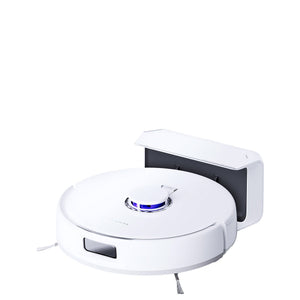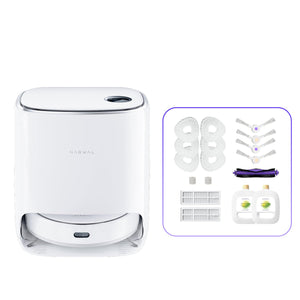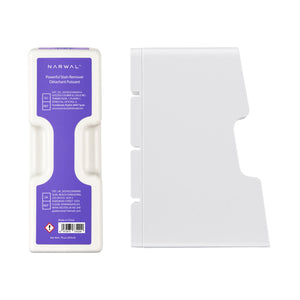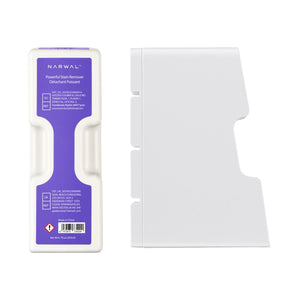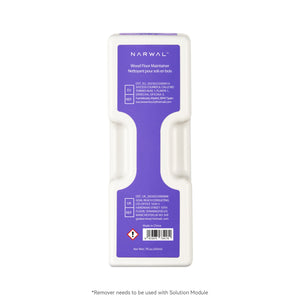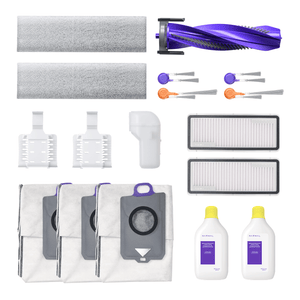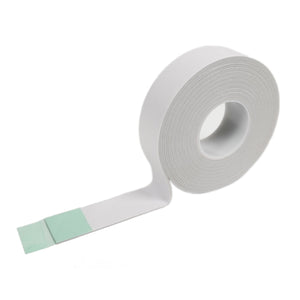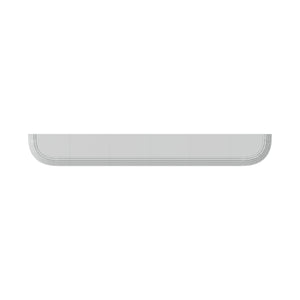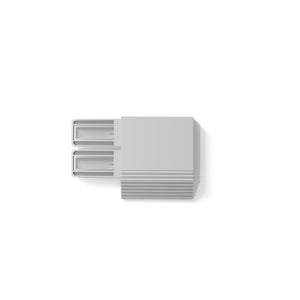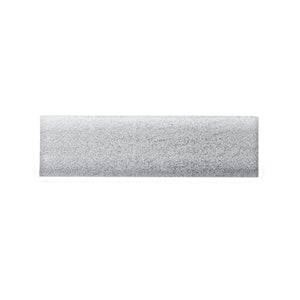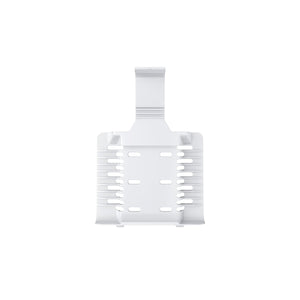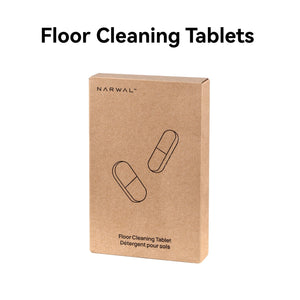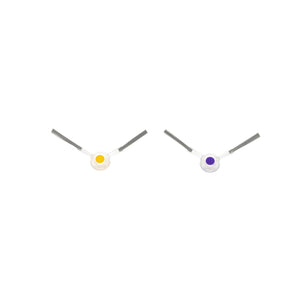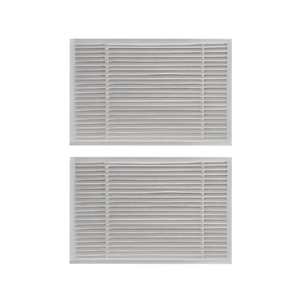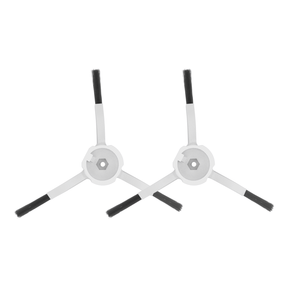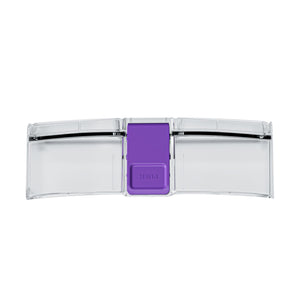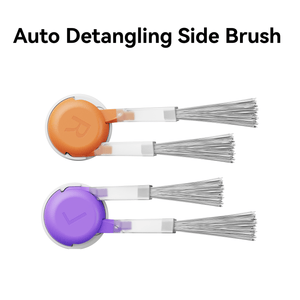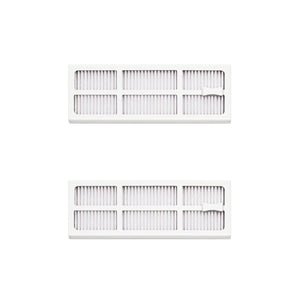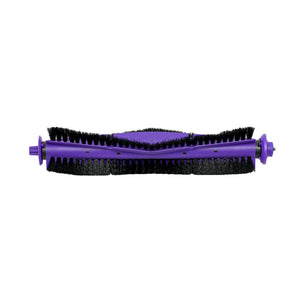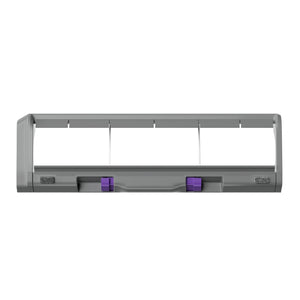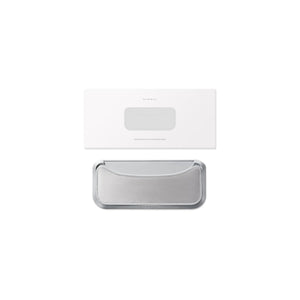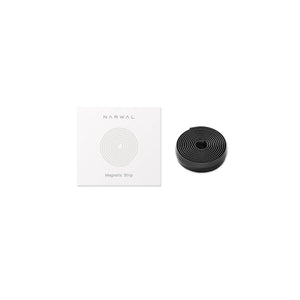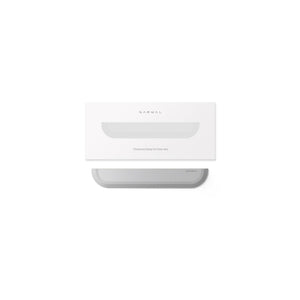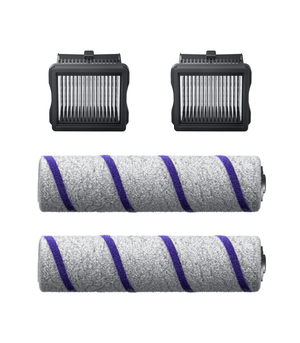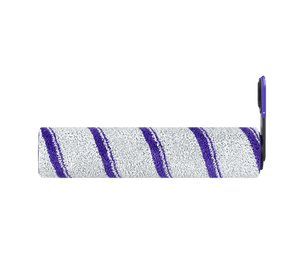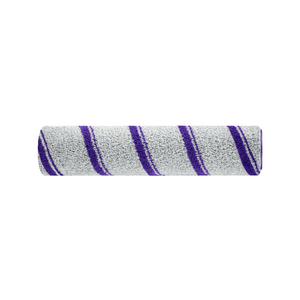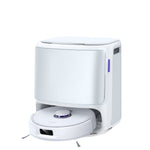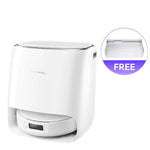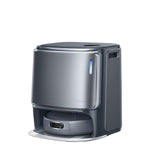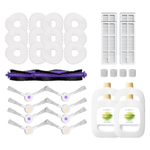Yes, a robot vacuum can suck up and kill a spider. Whether the spider survives depends on factors like suction power, spider size, and whether it gets crushed by the vacuum's brushes or rollers.
What Happens to a Spider When I Suck It Up with the Vacuum Cleaner?
Vacuuming a spider is often a violent experience for the insect. The strong suction pulls the spider through the hose at high speed, slamming it into the vacuum’s inner walls or dustbin. This rapid movement can crush or injure the spider, especially if it’s small or has a delicate body.
For many spiders, this leads to immediate death or serious internal trauma. Larger spiders with thicker exoskeletons might survive the impact, at least initially. However, the intense airflow, tumbling motion, and sudden change in environment are typically overwhelming, often resulting in fatal injuries soon after capture.
Will Vacuuming Spiders Damage My Vacuum?
No, vacuuming spiders is not harmful to your vacuum cleaner. Spiders are lightweight and small, and they won’t damage the motor or internal parts. The only minor risk is potential clogging, especially if the spider gets stuck along with dust or hair. This can be easily avoided with regular maintenance and cleaning of the dustbin or filter.
Can Spiders Survive Vacuum Cleaner?
Most spiders do not survive being vacuumed. The strong suction, impact trauma, and harsh conditions inside a vacuum cleaner usually result in death — either instantly or shortly afterward.
However, survival isn’t entirely impossible. Some larger spiders with thicker exoskeletons may withstand the suction and end up alive inside the dustbin or bag. But the environment is far from friendly: dust, debris, and a lack of air, food, or water will likely kill the spider within hours or days.
In rare situations, if the vacuum isn’t fully sealed or has small gaps, a spider might survive long enough to crawl back out — though this is highly unlikely with most modern vacuum cleaners, especially robot vacuums with enclosed systems.
What to Do After Vacuuming a Spider?
Vacuuming a spider can feel unsettling — whether it was accidental, out of fear, or simply part of tidying up. No matter the reason, here’s what you should do next to ensure your home stays clean, safe, and pest-free.
Check the Vacuum Immediately
Turn off the vacuum cleaner right away to prevent further harm to the spider or potential clogs. Carefully open the dustbin or vacuum bag and look for the spider inside. Be gentle and avoid sudden movements — some spiders may bite when startled or threatened.
If the spider is still alive, especially if it's a pet spider or a harmless house spider, try to remove it using gloves, a soft brush, or a piece of paper. Avoid direct contact, as some species can deliver a painful bite as a defense mechanism.
Place the spider in a container with small ventilation holes and release it outside, far from your home.
If you're unsure of the species or suspect it may be venomous, do not attempt to handle the spider directly.
If the Spider Didn’t Survive
If the spider is dead, it’s important to dispose of it properly. Empty the dustbin or remove the vacuum bag outdoors and place the contents in a sealed plastic bag before throwing it away. This helps prevent any pests or spider remains from re-entering your home.
Then, check and clean the filters, hose, and any attachments to remove debris, webs, or egg sacs that may have been vacuumed up.
Prevent Spider Eggs from Hatching Inside the Vacuum
Spiders sometimes lay eggs in webs or dusty corners — and these can accidentally get sucked into your vacuum. If left unchecked, the eggs could hatch inside the machine.
To avoid this:
-
Always empty the vacuum promptly after capturing a spider
-
Inspect for visible webbing or egg sacs
-
Clean or replace filters regularly, especially after vacuuming pests
Maintain Your Vacuum After Insect Cleanup
Keeping your vacuum clean ensures it continues to perform well and avoids odor or clogging. Here are a few tips to follow:
-
Empty the dustbin or replace the bag regularly to maintain suction power
-
Clean or replace filters to ensure good airflow and hygiene
-
Inspect the hose and attachments for spider remains, hair, or dust buildup
-
Wipe down the vacuum exterior with a damp cloth to remove debrisFollow manufacturer maintenance guidelines for belt changes, wheel lubrication, and other parts
Humane & Eco-Friendly Tip
If you’re uncomfortable with harming spiders, consider using a spider-catching tool or a jar-and-card method to trap and relocate them safely. Most house spiders are harmless and even help reduce other pests in your home.

Can a Spider Come Back Out of a Vacuum?
Though it is unlikely, there is a small possibility that a spider could crawl out of a vacuum if it has survived the suction. This is especially true if your vacuum model has gaps or vents through which a spider could escape. Most modern vacuums, however, are designed to trap debris—and any unwanted pests—securely inside the dustbin or bag.
Robot vacuums, like Narwal models, are generally even less likely to allow a spider to escape because they have sealed compartments for dust collection. Some vacuums feature self-emptying capabilities, which can further reduce the risk of a spider escaping, as the system is designed to contain and automatically dispose of the vacuumed debris.
What Happens if I Vacuum Up Spider Eggs?
Vacuuming up spider eggs can be effective, but there are precautions you should take to ensure that no eggs survive the process. While the force of the vacuum may damage or destroy some egg sacs, it is still possible for others to remain intact. If the egg sac remains undisturbed, it could eventually hatch inside the vacuum, leading to a potential spider infestation in your vacuum cleaner.
To prevent this, always empty the dustbin or bag immediately after vacuuming an area where spider eggs may be present. It’s a good idea to check the vacuum hose and any attachments as well, as eggs or egg sacs could potentially stick to the surfaces.
Is It Bad to Vacuum Spider Webs?
Vacuuming spider webs is an excellent way to eliminate both the visible sign of spiders and reduce the chances of new spiders taking up residence in your home. Spiders often use old webs as a starting point to build new ones, so removing webs can disrupt their habitat. Additionally, by vacuuming up the webs, you’re removing potential food sources for spiders, which can help discourage them from returning.
Regularly vacuuming webs, especially in high-risk areas such as corners, ceilings, and the vicinities of windows and doors, helps maintain a spider-web-free home and decreases the chances of future infestations.
How Can Narwal Robot Vacuum Cleaners Control Pests?

Narwal robot vacuum cleaners, like the Freo Z Ultra and S20 Pro, come with advanced features that make them highly effective at controlling pests, such as spiders and other small insects. With 12,000Pa suction power in the Freo Z Ultra, even tiny pests are easily captured and disposed of, reducing the chance of infestations. The S20 Pro offers similar suction strength, ensuring that both wet and dry messes, including pests and debris, are handled effortlessly in one pass.
Narwal’s innovative self-emptying and self-cleaning features make it easy to manage debris, including pests and their eggs, without ever needing to come in direct contact. The Freo Z Ultra’s AI-powered station and automatic water exchange system also contribute to a cleaner, more hygienic environment, further discouraging pests from returning.
The Freo Z Ultra uses dual 136° RGB cameras and LiDAR navigation, allowing it to access hard-to-reach areas like under furniture, where spiders often hide. The robot can clean these spaces more efficiently than traditional methods, removing webs and potential hiding spots. For homes with varied floor types, both models adjust seamlessly, delivering a comprehensive clean on hardwood, tile, and carpet.
[cta:narwal-freo-z-ultra-robot-vacuum-mop]
With the HEPA filtration in both the Freo Z Ultra and S20 Pro, allergens, dust, and small particles—including pest remains—are trapped, contributing to a healthier home environment that is less appealing to pests.
Why Choose Freo Z Ultra or S20 Pro for Pest Control?
Powerful Suction: Both models have powerful suction power, 12000Pa for the Freo Z Ultra and 20000Pa for the S20 Pro, ensuring thorough removal of pests and debris.
Intelligent Navigation: AI-driven obstacle avoidance helps these vacuums navigate cluttered spaces and target hidden dirt where pests may reside.
Versatility: Both vacuums offer wet and dry cleaning options, making them ideal for comprehensive home care.
Incorporating the Narwal Freo Z Ultra or S20 Pro into your home cleaning routine not only keeps your home spotless but also helps in reducing pest problems by removing their hiding spots, webs, and potential allergens that attract them.
[cta:narwal-s20-pro-vacuum-mop]
How to Permanently Get Rid of Spiders?
While vacuuming is an effective temporary solution, permanent spider removal requires a combination of strategies. Here are some long-term methods to keep spiders out of your home:
Seal Entry Points
Spiders gain access to homes through cracks and gaps in doors, windows, and walls. To prevent their entry, seal these openings with caulk or weather stripping.
Reduce Clutter
Spiders love cluttered areas because they provide dark, undisturbed places to hide. Keeping your home tidy and free from piles of clothes, papers, or boxes can discourage spiders from making a home indoors.
Use Essential Oils
Certain strong scents, such as peppermint, eucalyptus, and tea tree oil, are disliked by spiders. You can make a natural spider repellent by blending these essential oils with water and spraying it around windows, door frames, and other potential entry points.
Regular Cleaning
Routine vacuuming, especially with a Narwal robot vacuum, can remove webs, eggs, and other debris that might attract spiders. Keeping your home free of dust and crumbs can also reduce the number of insects that spiders prey on, making your home less appealing to them.
Maintain a Dry Environment
Moist environments are conducive to the growth of spiders and their prey. To discourage them, ensure your home is well-ventilated, repair any leaky pipes, and utilize a dehumidifier in damp areas such as basements.

Conclusion
While robot vacuum cleaners like those from Narwal are effective tools in controlling pests, including spiders, they are not a standalone solution for spider infestations. While vacuuming can assist in removing spiders, webs, and eggs, achieving long-term pest control necessitates a blend of preventative measures and routine cleaning. By integrating a Narwal robot vacuum into your household cleaning arsenal, you can reduce spider populations and maintain a cleaner, healthier living space.
FAQs
Does vacuuming reduce spiders?
Yes, vacuuming can reduce the number of spiders in your home by removing them directly, along with their webs and eggs. However, regular cleaning and prevention are key to keeping them from coming back.
Does vacuuming keep bugs away?
Vacuuming helps reduce the presence of various bugs by removing food particles, dust, and debris that attract insects. Regular cleaning disrupts pest habitats, reducing the likelihood of bugs and their predators, like spiders, thriving in your home.




